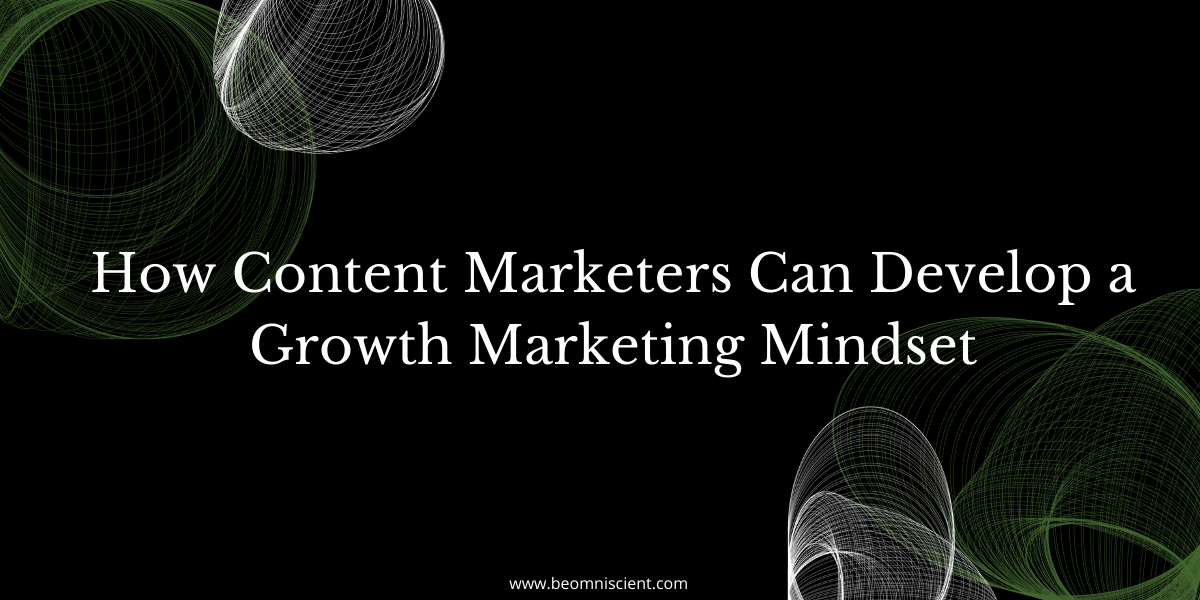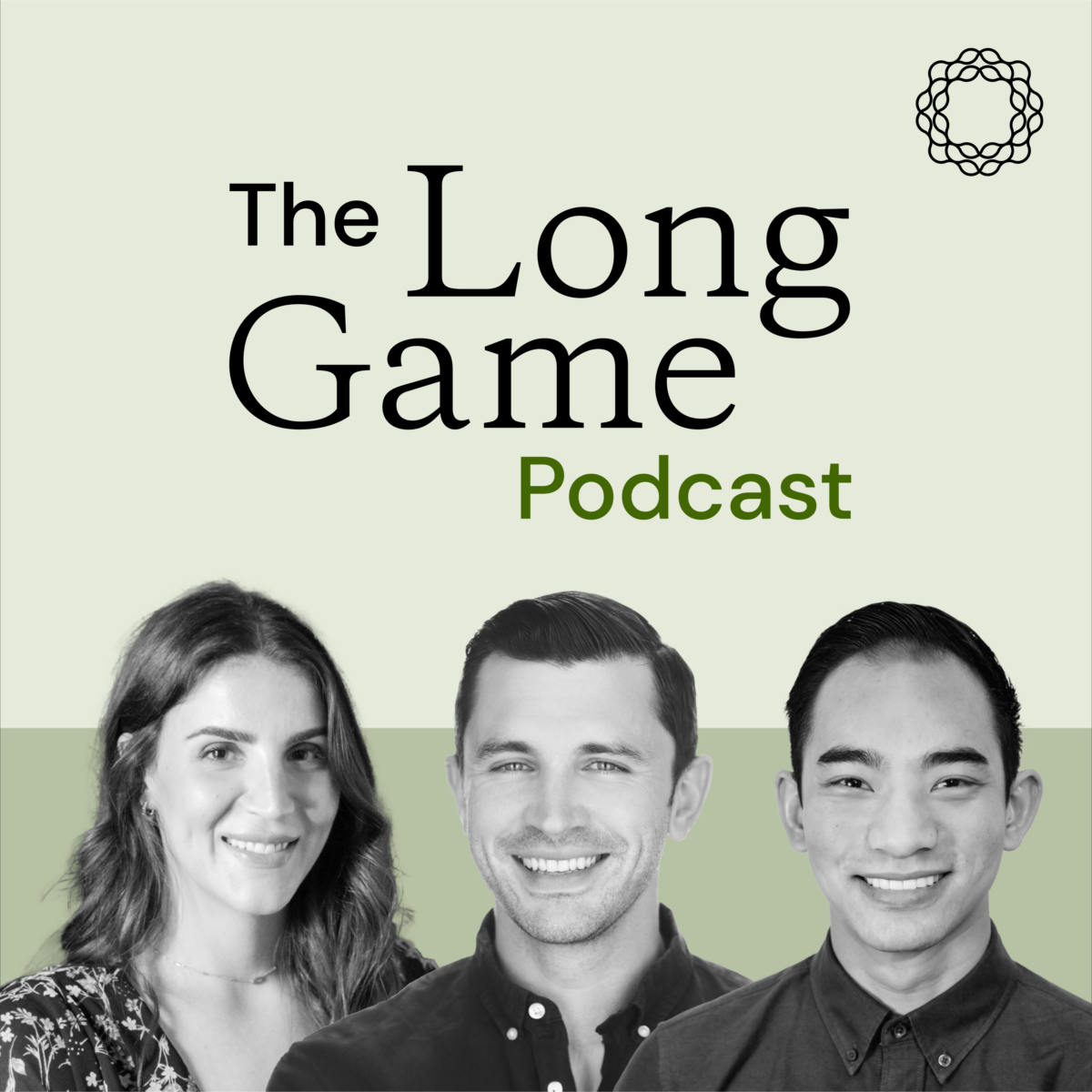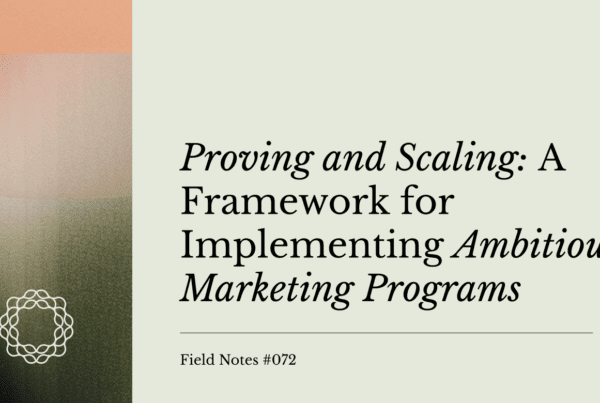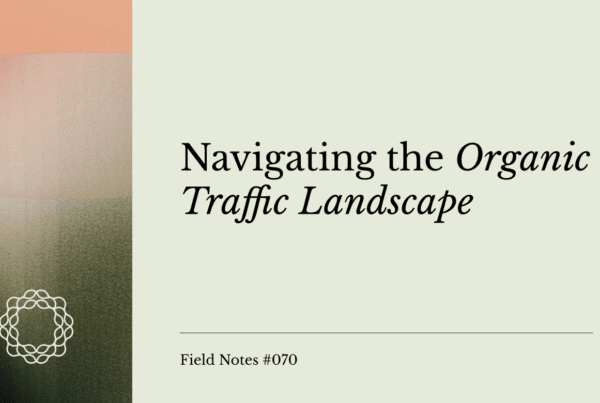
Growth marketing and content marketing are often considered two different teams, with two different purposes.
But here at Omniscient, we think that all marketing should be rooted in growth. As we see it, content marketing is part of growth, not separate from it.
Here’s why data-driven content marketing is so important, and how you can pursue it.
Contribute to business goals
Growth marketing can be defined as any marketing effort that has a specific purpose and is tied to business goals.
A growth marketer is using metrics they’re measuring themselves to make a case for a project and how it will impact those goals.
Ideally, every single marketer approaches their work that way.
The rise of digitization has enabled marketers to track all sorts of metrics that we couldn’t in the past.
Because of that, every team should be using a growth mindset and tracking the performance of their efforts, not just a growth team.
Being a content marketer doesn’t mean creating content for content’s sake. It should be about ensuring that each piece of content has a clear purpose that is tied to business goals.
Every piece of content needs to have a job, whether it’s meant to bring in more website traffic or help cultivate thought leadership.
Even if a project isn’t directly tied to something like conversion, there are still ways to make sure it’s rooted in growth.
Create content for the whole funnel
Traditionally, content marketing hits a wall once a person converts. The responsibility then shifts to the sales, customer success, or retention teams.
“Content marketing, in my short definition, would be creating content in order to engage interest and convert audiences,” said Omniscient’s Head of Content Allie Decker.
“That is just a small definition in terms of the acquisition play, very much top of funnel.”
There is content being created all the way through the funnel by different teams. Wouldn’t there be a benefit to content experts being involved through the whole funnel, not just the top?
“I think more and more content teams should be challenged to own the whole process or have at least representation in each part of the process,” Allie said.
For the best execution, content marketers should keep playing a role past the conversion stage.
Talk to other teams
It’s okay for content to be created by different teams. But the biggest mistake is keeping teams separated.
“I feel like it’s actually okay if they sit under different orgs, because there probably is some additional contextual insights that say a product content person is going to have with regards to the product experience,” said Omniscient Co-Founder Alex Birkett.
Same on the marketing side. The important thing is that teams talk to each other.
“The product side, they could benefit from the insights of knowing what content people read before they actually came in and that may help them craft a better journey towards that activation point, towards that monetization point, and vice versa,” he said.
On the flip side, content marketers could use tactical content from within the app or the retention level to produce educational blog content.
Growth can be more easily achieved when there is an integration of resources.
“I think the growth marketer, growth person, can then say, all right, we need more effort on acquisition. And therefore we’re going to invest more in content marketing and in this area. Or we’re doing poorly on retention, so actually we need to invest more in content in this area, and I think they can make those high-level decisions,” said Alex.
Growth marketing requires a shift in how things are organized. Content marketing doesn’t operate outside of growth – it’s part of the playbook.
Lead content with data
Some content marketers come up with a long list of content they want to create before stopping to see what content they actually need.
Embracing a data-driven content approach means starting with data models that show ROI, and then working backwards to build content.
For example, at Omniscient we start with the keywords we’re going after. Then, we forecast growth and traffic and see what the potential for that content is before we create it.
Sometimes content is the right lever to use to achieve a certain goal, and sometimes it isn’t.
A growth marketer first looks to see if the investment in content is worth the estimated returns you’ll get.
At most companies, there isn’t an expectation for content marketers to be skilled in data analysis. They’re seen as writers or content creators.
Adding a layer of data expertise to your resume will take you far as a content marketer.
If you’re a strong content marketer that can create great content and also can report back on the impact of said content on traffic or leads, or even mapping all the way down to revenue, you’re going to be viewed as very valuable and be seen as someone who can take on more responsibility.
Blindly churning out content simply isn’t the answer. It’s about figuring out the best possible value that content can provide, and the best value that you as an employee can provide to your company.
In order to change the culture and embrace a growth mindset, content marketers may need to seek out those opportunities themselves.
Make informed hypotheses
As much as we love hard numbers, there is also value in qualitative data and creating content to test a hypothesis.
The piece of growth that often gets overlooked is the idea of having a hypothesis for why you do things.
Sometimes, there simply isn’t data to back stuff up and you need to make sure there’s still clear reasoning and logic behind content, in the absence of numbers.
At Omniscient, we started the Kitchen Side branch of our podcast based on a hypothesis that it would help us develop thought leadership and credibility.
You can’t put data to something like that. We’re not going to expect millions of downloads in the next year. But we are getting feedback from people saying that they enjoy and appreciate the podcast insights.
Some projects, like a podcast, build up ROI over time.
Content marketing and growth marketing can and do overlap. Because there should always be a purpose and a goal to any marketing effort.
Start with the data, or at least a hypothesis, and you’ll be embracing quality over quantity and a growth mindset.



